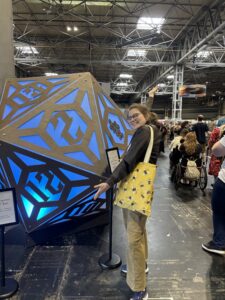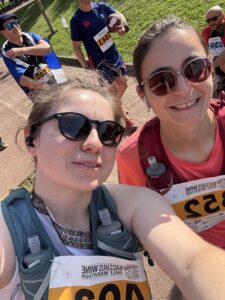Ines Carotti
What is your current job / programme of study?
PhD Engineering, EPSRC funding 
What A-Levels (or equivalent) did you do?
French Baccalaureate: Maths, Advanced Math, Physics, English
Why did you chose a career in Materials Science and Engineering (MSE)?
I started with general engineering, then explored electronics. During my PhD, I specialised in gas sensors, which meant designing and making my own materials for sensing — that’s what drew me into MSE.
What did you enjoy most about your MSE course? (If you didn’t do a MSE course which course did you do and what led to you MSE?)
I’ve always loved chemistry and physics, which pushed me towards engineering. What excites me most is creating hands-on solutions to problems we see every day. For example, I have worked on detecting pollution by developing metal oxide sensors: a technology I didn’t even know existed until my third year of university!
What is your research about?
I’m creating a new way to spot the early signs of rust, even in tough places like nuclear sites. Current methods are very precise but also slow and expensive. My approach is faster and cheaper: it finds areas where rust might be starting so that the more detailed tools can then focus only where they’re needed.
What is the coolest thing you have done in your career so far?
For me, it was building a 10-meter-long pipe for my experiments. I cut steel, rolled it into half-meter sections, and welded everything together. It really felt like my own project, and I learned so many new skills — it showed me I could build whatever I needed to reach my goals.
What do you see yourself doing in the future?
Learning. Whatever path I choose, I see myself learning new things every day. For me, the most important part of the future is to keep growing and discovering.
What is your favourite material (and why)?
Definitely any kind of iron oxide! To civil or mechanical engineers, they’re bad news because they mean rust and structural problems. But for chemists or electronic engineers like me, they’re exciting — they can be used in sensors and have lots of useful applications.
What advice would you give your 16 year old self?
Don’t be afraid to try, even if you fail. You will fail sometimes, especially during a PhD or in any career, but each failure teaches you how to do better next time. If you never try, you’ll never fail, but you’ll also never succeed. Try it. Do it. It’s always worth it. 

